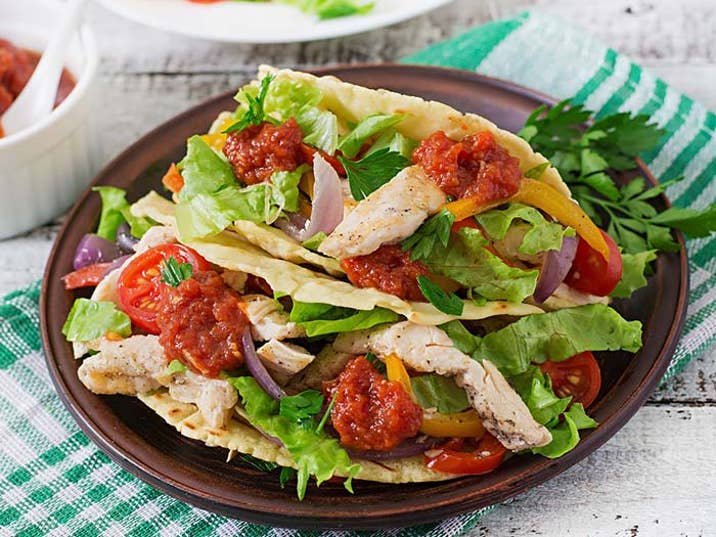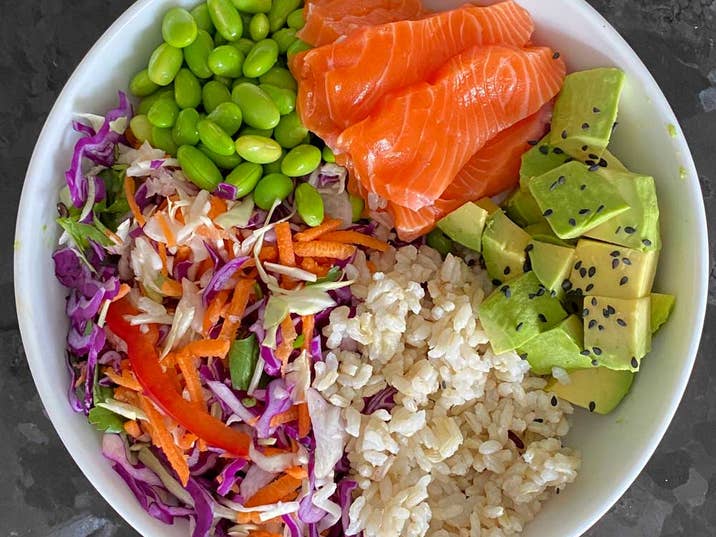Avocado Varieties | How to Buy, Store and Eat Avocados
Avocados
Find out all you need to know about the three types of avocado available in NZ, how to ripen and prepare them.
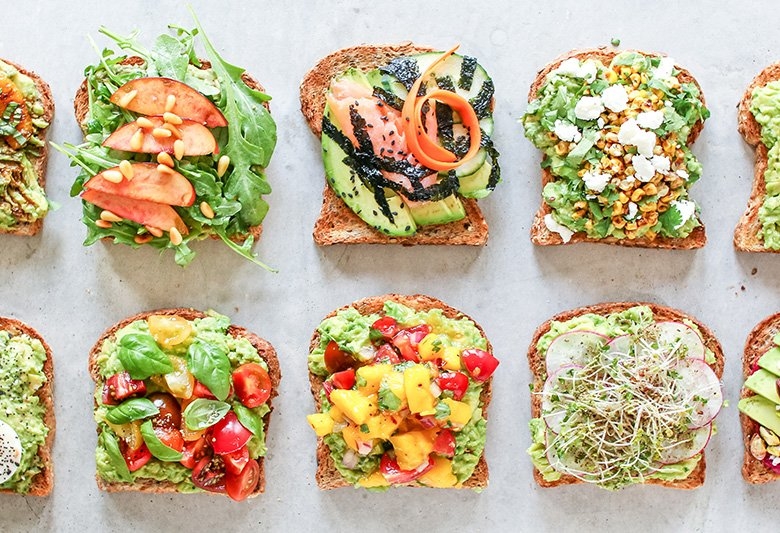
Native to South America, the avocado has been grown in New Zealand since the early 1900's. Today, with over 4,000 hectares of avocado tree planting in NZ, they're available in abundance. In fact, as a nation, we can boast that every avocado eaten in NZ is actually grown in NZ, a genuine locally grown food.
Our main avocado growing regions are the Bay of Plenty and Northland, where their warm climates and fertile soil provide perfect growing conditions for the avocado to thrive. Hass avocados are harvested from August through to April, with Reed and Fuerte varieties filling the gaps either side of this period.
The three main varieties we grow in New Zealand are Hass, Reed and Fuerte avocados. Hass avocados, represent 95% of all NZ grown avos because they're the only variety we're allowed to export.
3 most popular NZ avocado varieties for sale in store
The avocado season in New Zealand runs from February to October depending on the type of avocado you buy.
1. Hass Avocados
Hass avocados are pear shaped with a rugged green skin which darkens as it ripens. Sometimes referred to as an alligator pear, it is widely available from August through to April.

2. Fuerte Avocado
Fuerte avocados are also pear shaped, with a thinner, smoother green skin which remains green as it ripens. It is widely available from July to October.
3. Reed Avocado
Reed avocados are large and round shaped, with a thick, pebbly skin that stays green when ripe. It is widely available from February to June.
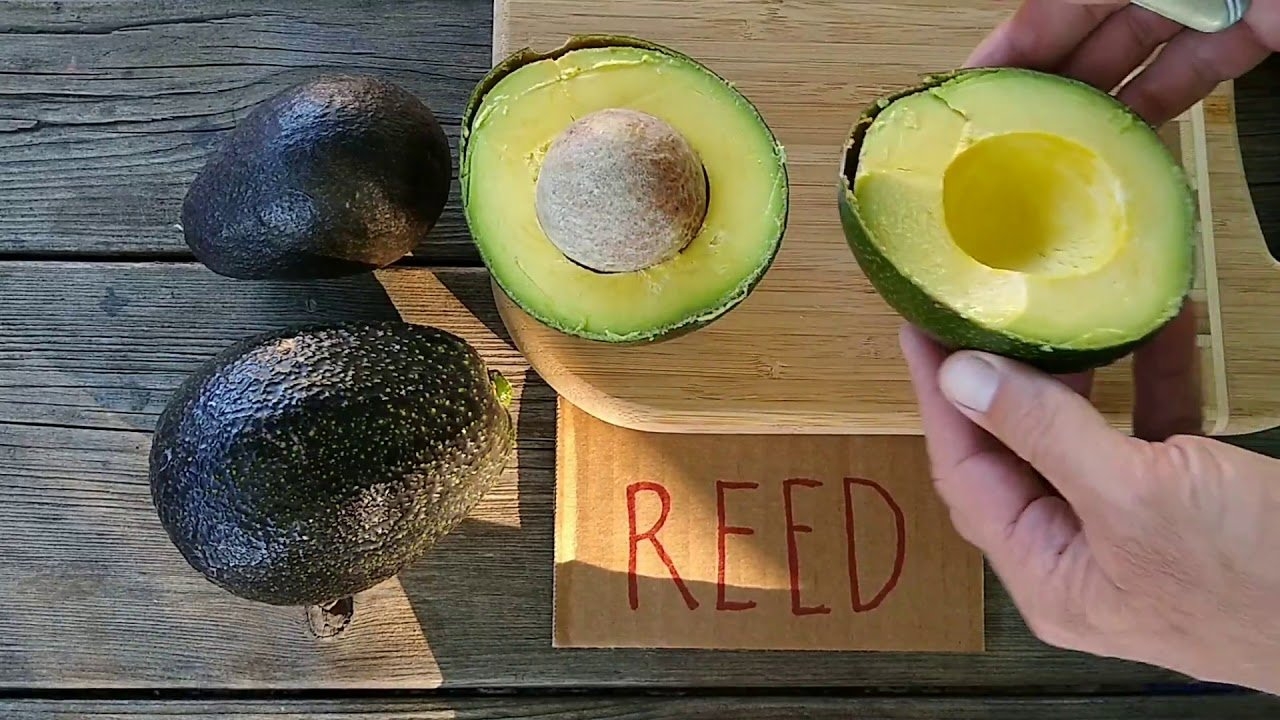
Is avocado a fruit or a vegetable?
Avocado is a fruit, botanically classified as a large berry with sweet flesh surrounding a single seed. From a nutritional perspective and in the kitchen, avocado is however considered a vegetable.
Buying and storing avocado is all about ripeness
Avocados don't ripen on the tree. It's only after harvesting that avocados will begin to ripen. When shopping, you can choose the ripeness of your avocado fruit, based on how soon you plan to eat them and how you intend to use them.
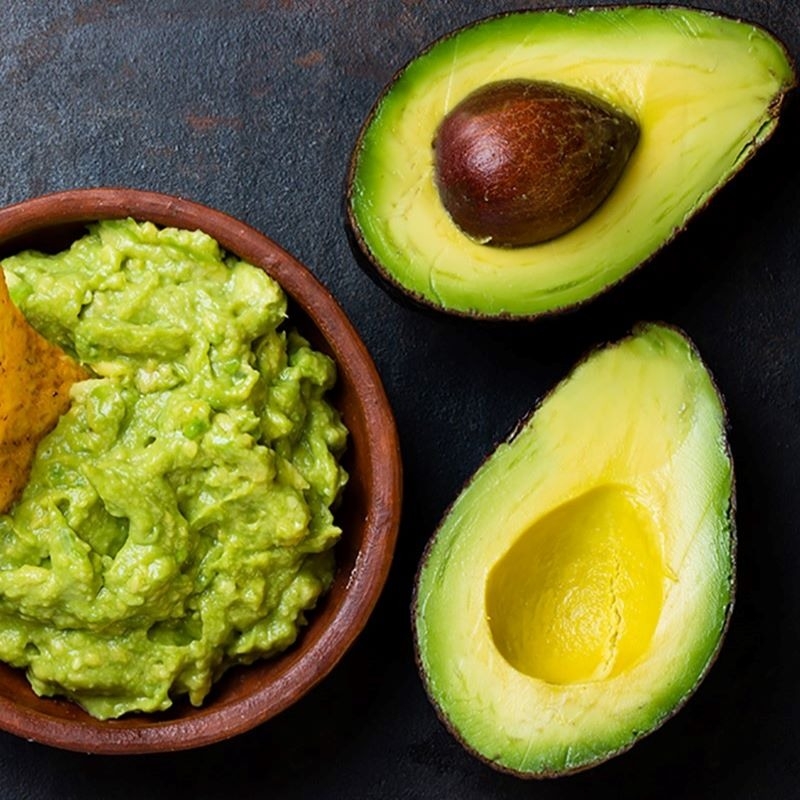
Hass avocados change colour as they ripen.
Skin colour is a clear indicator whether it's ripe enough to eat. You should avoid buying avos with indentations or scaly patches, which might indicate they've been lying on the ground.
Here's a guide to choosing the best colour:
| Colour | Ripeness | Action |
| Bright green | Not ripe | Will take 7 days to ripen |
| Olive green | Not ripe | Will take 2-3 days to ripen |
| Brown green | Firm ripe | Can be eaten or stored in a refrigerator for up to a week - The flesh will be deliciously creamy and a perfect texture for smoothies and salads. |
| Dark purple brown | Soft ripe | Can be eaten or stored in a refrigerator for 2-3 days - The flesh will be creamy and soft, perfect mashed or used in guacamole. |
Can you tell an avocado's ripeness by touch?
You should avoid squeezing avocados as the fruit will bruise and create an unappetising brown coloured pulp.
If you have already bought the avos and want to do a quick ripeness-check:
- Hold the avocado in the palm of your hand
- Using your whole hand (not your fingers or you’ll bruise the avocado) gently squeeze the avocado
- Rock hard: unripe - let it ripen for a few more days
- Slight give (but not squishy): most likely ripe
- Soft or mushy: overripe
Reed and Fuerte avocados are ripe when the stem can be gently pressed<
Both Reed and Fuerte's skin remains green, even when ripe. Don't squeeze the fruit, instead you should apply gentle pressure to the stem at the top. If it moves, it's ripe and ready to eat.
Once ripe, you can store uncut avocados in the refrigerator where they will continue to ripen but at a much slower pace. Remove them from the refrigerator and allow them to come to room temperature before eating them.
How to ripen avocados quickly
There is only one safe way to speed up the ripening process. Place the unripe avocados in a brown paper bag, together with an apple or banana and leave for 2-3 days. This traps the ethylene gas produced by the fruit, which helps to speed up ripening.
How to slow down avocado ripening
You can slow the ripening process by storing the avos in a cool dark place. The refrigerator is perfect for this. A couple of days before you plan to eat them, place them in the kitchen fruit bowl or a brown paper bag as above, if you need them sooner.
How to freeze avocados
You can freeze avocados and some retail stores actually sell bags of frozen avos. The ideal time to freeze is when the skin indicates that the fruit is firmly ripe. Half the avocado, remove the stone and peel the skin, then place the flesh into an airtight bag or container and place in the freezer. They can be stored for up to 3 months and are perfect for adding a creamy texture to smoothies and soups.
Preparing and cooking avocado
Avocado is sometimes described as butter fruit because it's creamy texture makes it an excellent substitute for butter in a sandwich or spread onto toast.
- Add to mash or jacket potatoes in place of butter.
- It can be mixed with tuna, chicken or boiled eggs in place of mayonnaise.
- Avocado can replace cream in creamy sauces and soups.
- Slices of avocado are a great addition to healthy salads, wraps and sushi.
- It's perfect paired with bacon in a BLAT (bacon, lettuce, avocado and tomato sandwich)
- It makes a delicious creamy dip or hummus to eat with raw sliced vegetables or chips.
- Take a lead from 16th century Aztecs of Mexico who invented guacamole and believed it was an aphrodisiac. They mashed ripe avos with chilli peppers, tomatoes, white onions and salt, which is the basis for many modern day recipes. You can also add lime juice to preserve its bright green colour.
Try these delicious avocado recipes at home
Nutrition and health benefits of avocado
Highly regarded by some nutritionists as a superfood, it's recommended we eat half an avocado a day as part of a healthy balanced diet.
Avocados are a low carb, low sugar, nutrient dense food which is a rich source of dietary fibre and healthy fat. Fat is one of the most essential nutrients the body needs to function properly and 85% of an avos fat content is made up of healthier monounsaturated fat and polyunsaturated fats. Healthy fats are required to process fat soluble vitamins A and E, vitamin C and beta- carotene. Avocados are also a rich source of magnesium, potassium, B vitamins and pantothenic acid.
Here are some of the main health benefits of avocado:
Reduces the risk of cardiovascular disease
Cholesterol free and packed with healthy monounsaturated fatty acids and polyunsaturated fats, avocados can help to lower bad LDL cholesterol levels. This can reduce the risk of hardening of the arteries, heart disease, high blood pressure and stroke.
Reduces blood pressure
Avocados are a richer source of potassium than bananas. High blood pressure can be caused by high sodium levels (found in salt). Potassium promotes the removal of this sodium via urine, which in turn helps to keep our blood pressure down.
Improves Type 2 diabetes management
With an incredibly low glycemic index rating, when you eat avocado they have little effect on blood sugar levels. Regular avocado consumption can help to regulate blood glucose levels in those with Type 2 diabetes.
Supports weight loss
Eating avocado on a weight loss programme can keep you feeling full for longer and prevent you from overeating. This is because avocado is a good source of dietary fibre. Avocados are however high in calories, so moderation is called for when eating avocados on a calorie restricted diet.
Supports healthy pregnancies, brain health and the central nervous system
Rich in folate, a B vitamin essential for proper brain function, avocados provide high levels of folate that can help prevent birth defects to the brain and spine of the developing foetus. Pregnant women and those of child bearing age are advised to increase their intake of folate as part of their daily nutrition. Folate continues to be vital for healthy growth and brain development throughout life, so should be included in the whole family's daily diet.
Enjoy fresh seasonal avocados
Fresh avocados are such a versatile ingredient in the kitchen and a nutritional powerhouse. Try to incorporate regularly into your family's diet and enjoy its delicious goodness. Find out more about other seasonal winter fruits and vegetables here.
Read more Fruit and Vegetable guides
Pumpkin | Kumara | Silverbeet | Asparagus | Watermelon | Afourer Mandarin | Cherry Tomato | Mushrooms | Avocado | Grapefruit | Broccoli | Celery | Potatoes | Oranges | Strawberries
